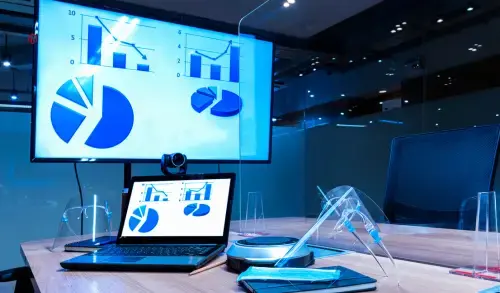Meta title: Key points to help you make the most successful presentation
Meta description: No matter how great a speaker you are, it is better that your speech is accompanied by a clear visual presentation. In this article, we’ll show you how to make presentations the right way.

A presentation is like a first love – it happens at least once in everyone’s life. Project defense at the university, a report for the boss, a lecture for students or a report at a conference – with a good presentation, you will get plus ten points for each speech. If you leave with illegible slides, your ideas will not be heard or understood. As in writing disciplines, there are such law essay writing services, and for creating presentations, you can always find experts who will help you with a difficult task. Especially if you are a student.
In this article, you will learn how to make a presentation: what should be its structure and how to create great slides. You will also learn how to avoid common mistakes when creating slides and be able to make a beautiful presentation without design skills.
Main types of presentations
A presentation is a handy tool to help convey your idea, teach something, or “sell” an idea to an audience. Intelligible slides will help the salesperson present a new product to customers, and the teacher will easily explain the rule or formula.
The presentation often plays the role of a commercial proposal. The presentation will help convey information about the product in a concise and understandable way.
Stages of creating a presentation
The main thing in any presentation is that it should reveal the main idea of the speaker and help him achieve his goal. Therefore, do not start by looking for bright pictures and thinking about the color of the background and text. Design is the last step: beautiful slides are important, but clear, logical content is more important. Then goes the speach which you can write with the help of https://essaysformoney.com/. The main stages of work on the presentation are described below.
1. Formulate a goal
The answer should be as specific as possible. For example:
- convince potential course students to enroll in the tester program
- It prove to investors that your startup is trustworthy
- and explain to 9th-grade students what is unique about the Silver Age.
When adding each slide, putting one or another thesis on it, placing a picture, keep in mind the purpose of the presentation. If this text, photo, or graph helps you achieve your goal, leave it. Ruthlessly get rid of everything unnecessary, the world has already seen too many overloaded.
It is impossible to induce action or decision-making without working with objections, answering popular questions and comparing with alternative proposals.
2. Define your target audience
The nuances of presentation depend on who will watch your performance. Therefore presentation to potential investors and partners, use numbers, graphs and charts.
For potential customers, it may be more interesting to insert illustrative examples of the product with photos and videos. For the press of course don’t forget to use bright infographics.
3. Decide on a topic
If the speaker has clearly formulated the topic and sticks to it during the speech, listening to him is pleasant and easy. When there is no specific topic, you get an informational mess and waterfalls of unnecessary facts. You have probably heard such unsuccessful presentations more than once and dreamed of running away from them.
A common mistake is to take too broad a topic. In this case, the presentation grows by leaps and bounds and it is difficult to understand what is important in it and what is not. There is too much information and it is not possible to clearly state the thesis.
4. Build structure and define content
Before you make slides and look for illustrations for your presentation, decide on its content. If you have correctly identified the purpose and topic of the presentation, it is not difficult to prepare the structure.
Define the problem you want to propose a solution to. Describe it for the listener, based on his pains and worries.
Explain why the audience should hear about this issue at all – why it is important, what its consequences are. Make simple, concise text with examples and a clear structure.
Describe the solution to this problem, based on how your target audience thinks.
Write an introduction and conclusion. In the introduction, tell about those moments without which the audience will not understand the further story, and try to interest them. In conclusion, answer potential objections – what other ways to solve the problem exist and why are they better or worse than those proposed by you.
Diversify Your Slides
Think back to boring presentations that were full of text, and don’t do that. Let your presentation have rhythm (like a speech): mix text slides with pictures, diagrams, graphs and drawings. Let the content be visually diverse, then the audience will not get bored.
And remember, visibility is important. With presentations, the visibility rule works just fine.
The more you study other people’s great presentations, the better you will make yours.
The bottom line
Follow these tips, watch other people’s good presentations, follow the logic of the story, and your presentation will be effective. A good presentation is a great tool to achieve a variety of goals.
Read also: Reasons to Select Cool Slide Themes for Your PowerPoint Presentations


